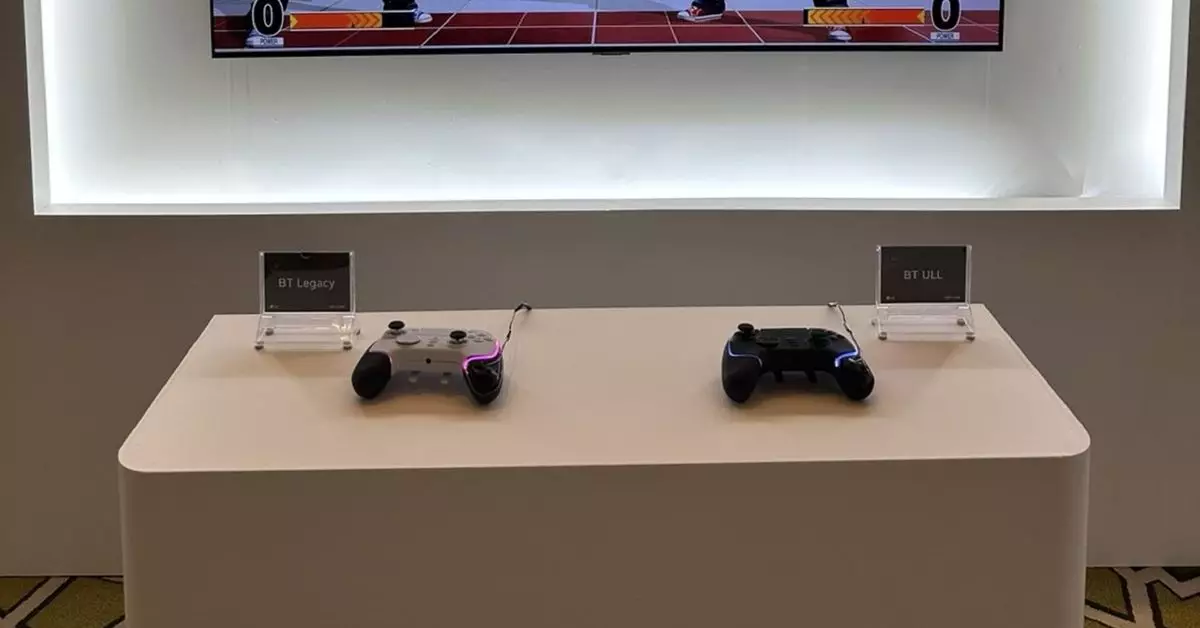In the fast-evolving world of gaming, reducing input lag is a top priority for developers and hardware manufacturers alike. Recently, LG has partnered with Razer and MediaTek to introduce a groundbreaking Bluetooth gaming controller designed to notably enhance the gaming experience through reduced latency. This collaboration focuses on pioneering Ultra-Low Latency (ULL) Bluetooth technology, which promises to revolutionize how players interact with cloud gaming platforms. By potentially offering a performance level akin to that of traditional wired controllers, this innovation could set new industry benchmarks.
The significance of the LG, Razer, and MediaTek partnership lies in their combined expertise. Razer is renowned for its high-performance gaming peripherals, while LG brings its reputation for innovative technology in consumer electronics. MediaTek’s contribution comes in the form of advanced chipset capabilities designed to bolster wireless communication. The synergy of these brands aims to address one of the most significant challenges in gaming today: the limitations of Bluetooth technology compared to wired connections, especially in competitive environments where every millisecond counts.
At a recent webOS Summit, LG presented its ULL-enabled Bluetooth controller, demonstrating its effectiveness by comparing it to a traditional controller. The results showcased an impressive reduction in input lag, with the ULL-enabled device reportedly achieving an astonishing 1ms latency—far below the 10-20 milliseconds threshold that is generally acceptable for competitive gaming. This performance leap could fundamentally shift gamers’ preferences, particularly among those who depend on precision in fast-paced genres such as first-person shooters or racing games.
This initiative follows Google’s previous attempt to tackle input latency through its now-defunct Stadia service, which allowed controllers to connect directly to its data centers over Wi-Fi. Although Google’s efforts did not persist, they highlighted the critical importance of latency in enhancing the gaming experience. With LG’s upcoming ULL technology integrated into select models of their 120Hz OLED and mini-LED TVs, set to launch in 2025, the foundation for a new gaming ecosystem is emerging.
While the ULL-enabled controller is still shrouded in uncertainty regarding its official name, pricing, and exact release date, enthusiasts are eagerly awaiting further announcements. The Consumer Electronics Show (CES) in January 2024 is anticipated to shed light on both the Razer controller and LG’s ULL-supported TVs. As gaming technology continues to advance, players can expect significant improvements that promise to make cloud-based gaming more responsive and enjoyable than ever.
The collaboration of LG, Razer, and MediaTek marks a pivotal moment in the evolution of gaming accessories. By addressing input lag—a key determinant of gaming performance—the new ULL Bluetooth controller could redefine the standards for cloud gaming interactions. As the gaming community waits for further developments, the potential for a more immersive gameplay experience is undeniable. This technological leap could not only attract casual gamers but also cement the loyalty of competitive players who seek every edge possible in their gaming endeavors. The future of gaming is bright, and with innovations like these on the horizon, the landscape of interactive entertainment is set to become more thrilling than ever.


Leave a Reply